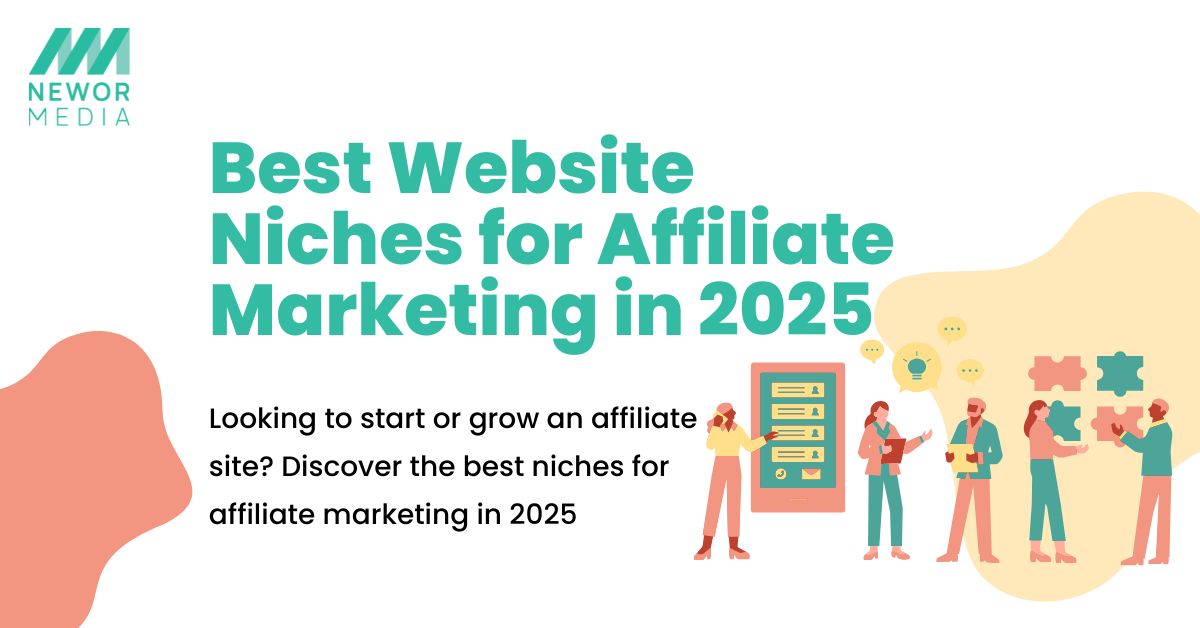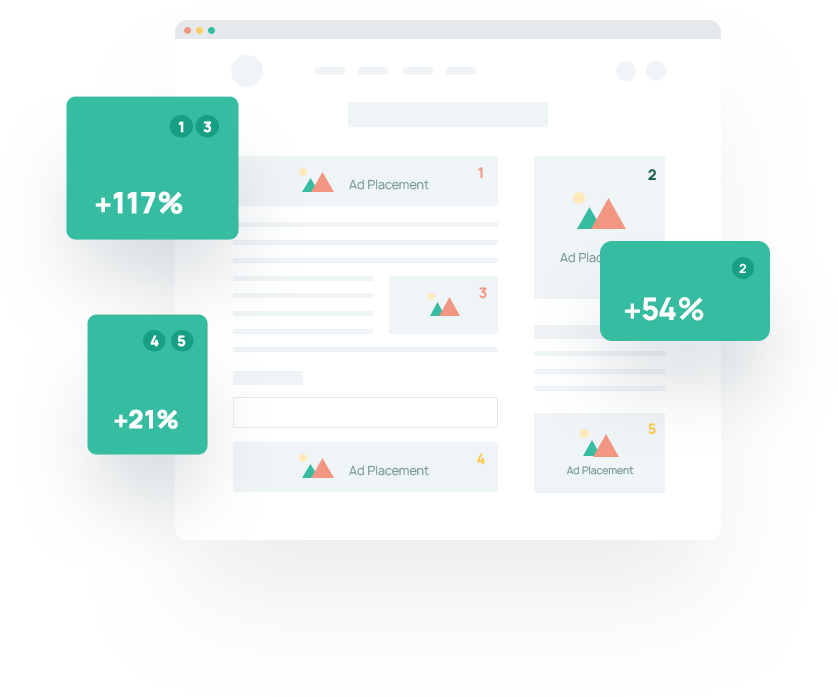Affiliate marketing isn’t new—but it’s far from outdated. With more content creators, bloggers, and digital entrepreneurs diving into performance-based revenue models, affiliate marketing remains a reliable path to monetization. But one question continues to come up: what are the best niches for affiliate marketing?
Here’s the thing—there’s no universal “best.” But there are website niches that consistently perform better than others because they attract highly targeted audiences, solve real problems, and align well with products people actually buy online.
Whether you’re just starting out or looking to fine-tune your current affiliate site, this guide breaks down some of the top affiliate marketing niches for 2025, what makes them profitable, and how to choose the right one for your content.
Why Niche Matters in Affiliate Marketing
Before diving into the list, let’s get something clear: your niche is more than a topic. It defines your audience, the type of content you create, and which affiliate programs make sense for you.
A strong niche:
Solves a clear problem or meets a need
Has enough product variety for consistent promotion
Attracts audiences that trust recommendations (your reviews, comparisons, etc.)
Offers affiliate programs with solid commission structures
With that in mind, let’s explore the best affiliate marketing niches that are thriving in 2025.
Personal Finance and Investing
Why it works: Everyone wants to make smarter money decisions—whether it’s budgeting, investing, or finding the best credit card. Financial advice is timeless, and affiliate opportunities are wide-ranging, from apps and tools to digital courses and financial products.
Common affiliate products:
Budgeting apps (e.g., You Need A Budget, Mint alternatives)
Investment platforms (e.g., Robinhood, Public, Acorns)
Credit card offers and financial tools
Online tax prep software
Good to know: Trust is huge here. If you’re going into this space, content needs to be researched, accurate, and transparent—especially if you’re recommending financial tools or investment advice.
Health, Wellness, and Fitness
Why it works: Health remains one of the most evergreen affiliate marketing niches. Whether it’s fitness routines, mental health, supplements, or wellness gadgets—people are willing to spend on improving their health.
Common affiliate products:
Supplements and vitamins
Workout equipment (home gym gear is still big post-2020)
Fitness apps and training programs
Sleep tech, posture correction, or ergonomic aids
Trending in 2025: Micro-niches like gut health, women’s hormonal wellness, and wearable health tech are gaining traction.
Tech and Gadgets
Why it works: New phones, laptops, headphones, and home gadgets are constantly dropping. Consumers actively seek comparison guides, honest reviews, and tutorials—which gives affiliate sites a big opportunity to step in.
Common affiliate products:
Consumer electronics (phones, tablets, smartwatches)
Smart home devices (speakers, security systems)
Subscription services (cloud storage, VPNs, antivirus tools)
Software tools and productivity apps
Tip: You don’t need to cover everything. Focusing on a subcategory (like budget laptops or home automation) helps build authority faster.
Home Improvement and DIY
Why it works: Home has become more than just a living space—it’s now also a gym, office, and studio. People are investing more in making their spaces functional and aesthetic, and they turn to creators and bloggers for advice.
Common affiliate products:
Home décor and furniture
DIY tools and equipment
Kitchen appliances
Smart home integrations
Best performing content: Product roundups, project walkthroughs, before-and-after transformations, and seasonal gift guides.
Beauty and Personal Care
Why it works: This niche has a loyal following. From skincare to hair tools, consumers often buy based on influencer and peer recommendations.
Common affiliate products:
Skincare and grooming products
Hair styling tools
Makeup and beauty subscriptions
Natural and cruelty-free product lines
What’s working in 2025: Sustainability sells. Brands with clean ingredients, ethical sourcing, and eco-packaging are getting a lot of consumer love.
Parenting and Family Life
Why it works: Parents are constantly looking for products and resources to make life easier—from baby gear to educational tools and household hacks.
Common affiliate products:
Baby products (strollers, carriers, monitors)
Toys and learning kits
Meal planning services
Family travel gear
Nice to know: Parenting blogs and family-oriented YouTube channels often build strong community-driven engagement, which leads to high conversion rates.
Travel and Remote Living
Why it works: While the travel industry dipped during COVID, it’s back—and growing. But how we travel has changed. Now it’s more about flexible, remote lifestyles, work-from-anywhere setups, and meaningful experiences.
Common affiliate products:
Luggage, backpacks, and travel gear
Booking platforms (flights, stays, insurance)
Language learning apps
Travel credit cards and reward programs
Fresh angle for 2025: Content around digital nomad living, slow travel, or eco-conscious travel is doing well.
Education and Online Learning
Why it works: The self-education boom continues. People are investing in online learning—whether it’s picking up a new language, learning to code, or mastering a creative skill.
Common affiliate products:
Online course platforms (Udemy, Skillshare, Coursera)
Educational software and tools
Language learning apps (Duolingo, Babbel, etc.)
Certification programs
Affiliate angle: Product reviews, comparison blogs, and curated “best-of” lists tend to perform well.
Pets and Pet Care
Why it works: People treat pets like family—and they’re willing to spend on them like they would on kids. This niche isn’t just profitable, it’s also incredibly fun to create content for.
Common affiliate products:
Pet food and supplements
Grooming tools and toys
Training programs
Subscription boxes for pets
Micro-niche potential: Focus on specific pet types (cats vs. dogs vs. reptiles), breeds, or pet training.
Green Living and Sustainability
Why it works: Consumers are becoming more conscious of their environmental footprint. They’re searching for better products and practices—and your site can become a go-to guide for living more sustainably.
Common affiliate products:
Eco-friendly home goods
Reusable kitchenware
Sustainable fashion brands
Carbon offset services or green energy tools
Great content formats: How-to guides, comparison content, and product swaps (e.g., “5 Plastic-Free Alternatives to Try”).
Choosing the Right Affiliate Niche for You
Reading through all this, it might be tempting to pick the niche that looks the most profitable. But the real key to long-term success in affiliate marketing? Picking a niche you can consistently create useful content around.
Here’s how to narrow it down:
Start with your interests or background. You’ll be writing and talking about this topic a lot.
Validate demand. Use Google Trends or keyword research to see if people are actually searching in this space.
Check affiliate programs. Make sure there are enough products you’d be proud to promote.
Think long term. Ask yourself: can I still see myself working on this site 12–18 months from now?
Final Thoughts
The best affiliate marketing niches in 2025 aren’t just the most searched—they’re the ones that combine value for your audience with products people want to buy. Focus on helping, educating, or simplifying someone’s life, and the conversions will follow.
And once your niche is set, it’s not just about plugging in affiliate links. You’ll want to think about your site design, SEO, user experience, and even ad monetization options to round out your revenue strategy.
That’s where Newor Media can help. Whether you’re running an affiliate site, a blog, or a content hub—we offer premium ad solutions that don’t disrupt user flow but help you unlock the full value of your traffic.


2 Comments
Comments are closed